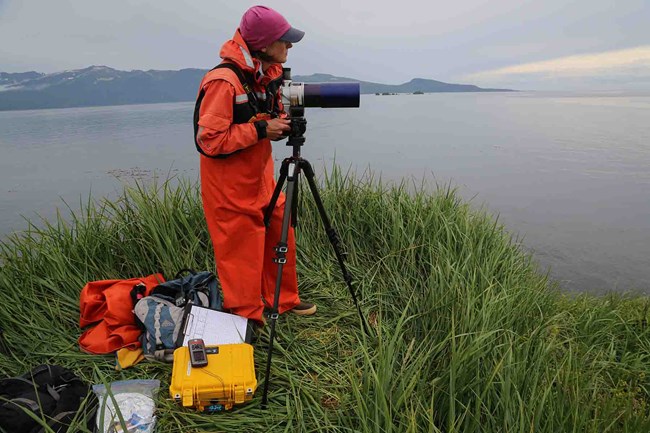
NPS/Jim Pfeiffenberger
Science is the systematic development of knowledge through observation, experimentation, analyses, and evaluation of outcomes against a standing body of facts, as best we know them. We conduct and use science in Alaska to inform management decisions and gain valuable insights into broad issues, such as the impacts of climate change on park resources. Alaska’s parks are large and have naturally functioning ecosystems. This provides an opportunity for long-term monitoring and other science initiatives to explore how these natural systems are changing over time. We also use science to enhance visitor experiences, to support development of education and interpretation programs, and directly engage people in science through citizen science projects and bioblitzes.
Learn more about science in the National Park Service.
go to
About Our Scientists
Meet our scientists and see what they do in the field. Check out their pages to find their published papers and contact information.
Go to
Alaska Park Science
Want to catch up with science happening in Alaska? Check out the most recent as well as past editions of Alaska Park Science.
Go to
Arctic Science
Arctic parks in Alaska are unique within the National Park System. Learn more about the science of this region.
go to
Climate Change
High-latitudes, like parks in Alaska, experience climate change at an accellerated rate compared to other places. Learn more about the science and affects of climate change in Alaska's parks.
go to
Inventory & Monitoring
Alaska's inventory and monitoring program is a primary source of science. Working with parks, scientists in this program track the status and trends of park resources.
Go To
Science Articles
Read the abstracts and link directly to peer-reviewed journal articles about science conducted in Alaska's parks.About the Alaska Natural Resource Team
The regional natural resource team is a primary source of science and expertise to support natural resource decision making and provide a knowledge foundation for exceptional visitor experience programs.
Last updated: February 17, 2021
